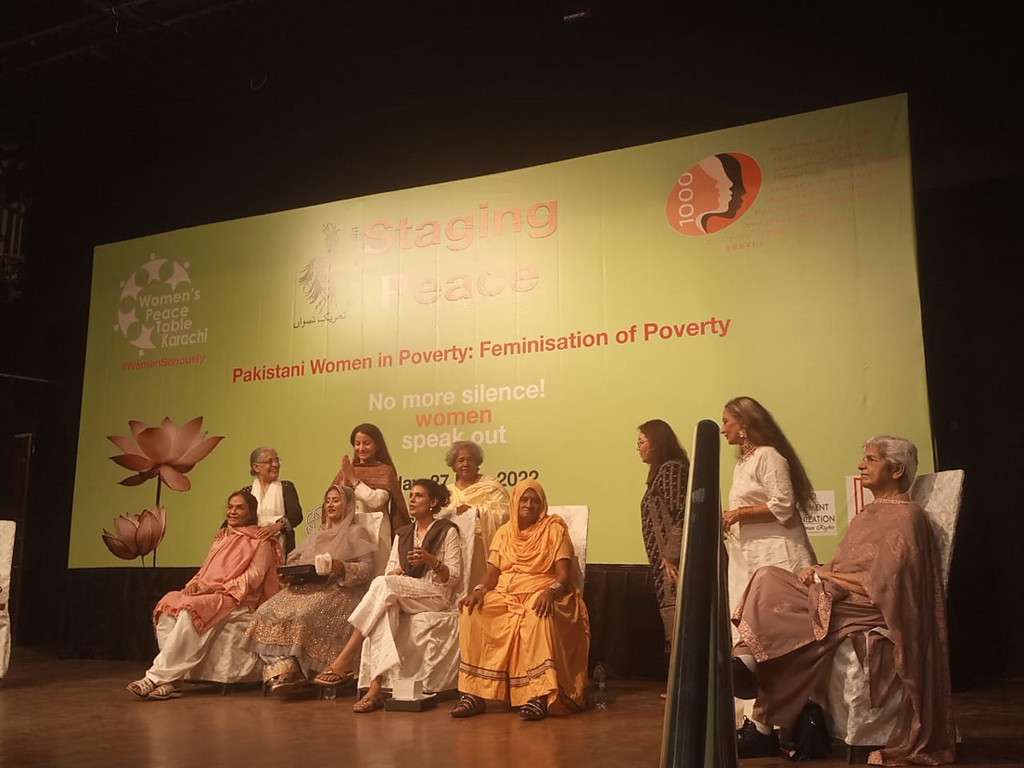About us
PeaceWomen Across the Globe is an internationally active feminist peace organisation based in Bern that supports women in contexts affected by armed conflict in their diverse efforts to build lasting peace.


Political tensions and economic turmoil in Pakistan are the causes of an increase in insecurity in the country. Ethnic and religious minorities who are marginalised and persecuted and women who experience gender-based violence are particularly affected. Many sink deeper into poverty. Our project partner uses theatre performances to highlight these inequalities, promote dialogue and peace.
PeaceWoman Sheema Kermani has been using classical dance and theatre as forms of alternative communication for decades. In conservative Pakistani society, marked by animosity and suspicion, dance and theatre are a widely accepted medium among all sections of the population and therefore a good tool for peacebuilding.
Sheema Kermani is the founder of our project partner Tehrik-e-Niswan, which has been promoting the emancipation of women in Pakistan through the performing arts since 1979. In our "Staging Peace” project, interactive performances on the topics of women and education, women and violence and women in poverty were performed at Women's Peace Tables in Quetta and Karachi in 2021 and 2022. Quetta is the capital of the state of Balochistan, which has a long history of armed conflict and ethnic tensions that greatly affect women in many ways. In Karachi, the focus was on the feminisation of poverty.
In addition to cultural performances that provide low-threshold access to these issues, the Women's Peace Tables featured lectures and panel discussions with leaders from the women's and human rights movements on topics such as the rights of ethnic minority women and women's political participation. The Women's Peace Tables were attended by several hundred people and co-sponsored by Pakistani women's, peace and human rights organisations.